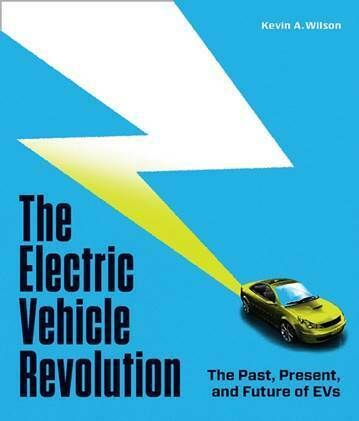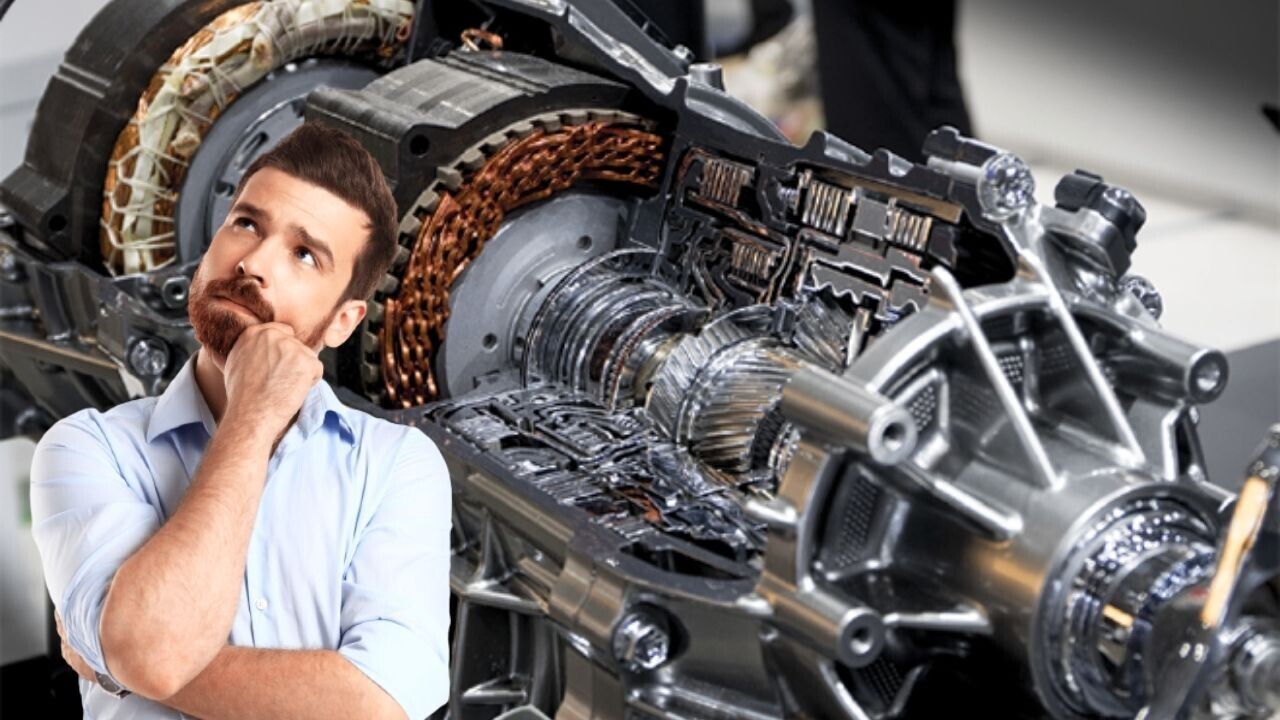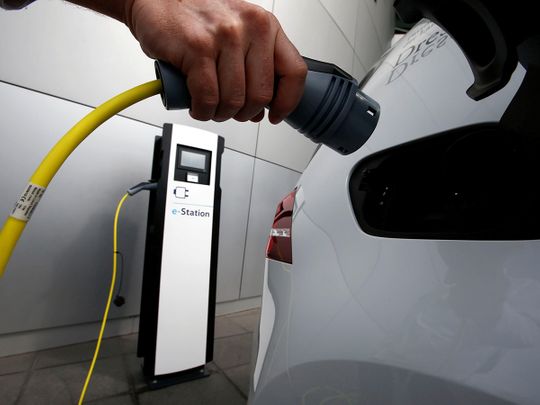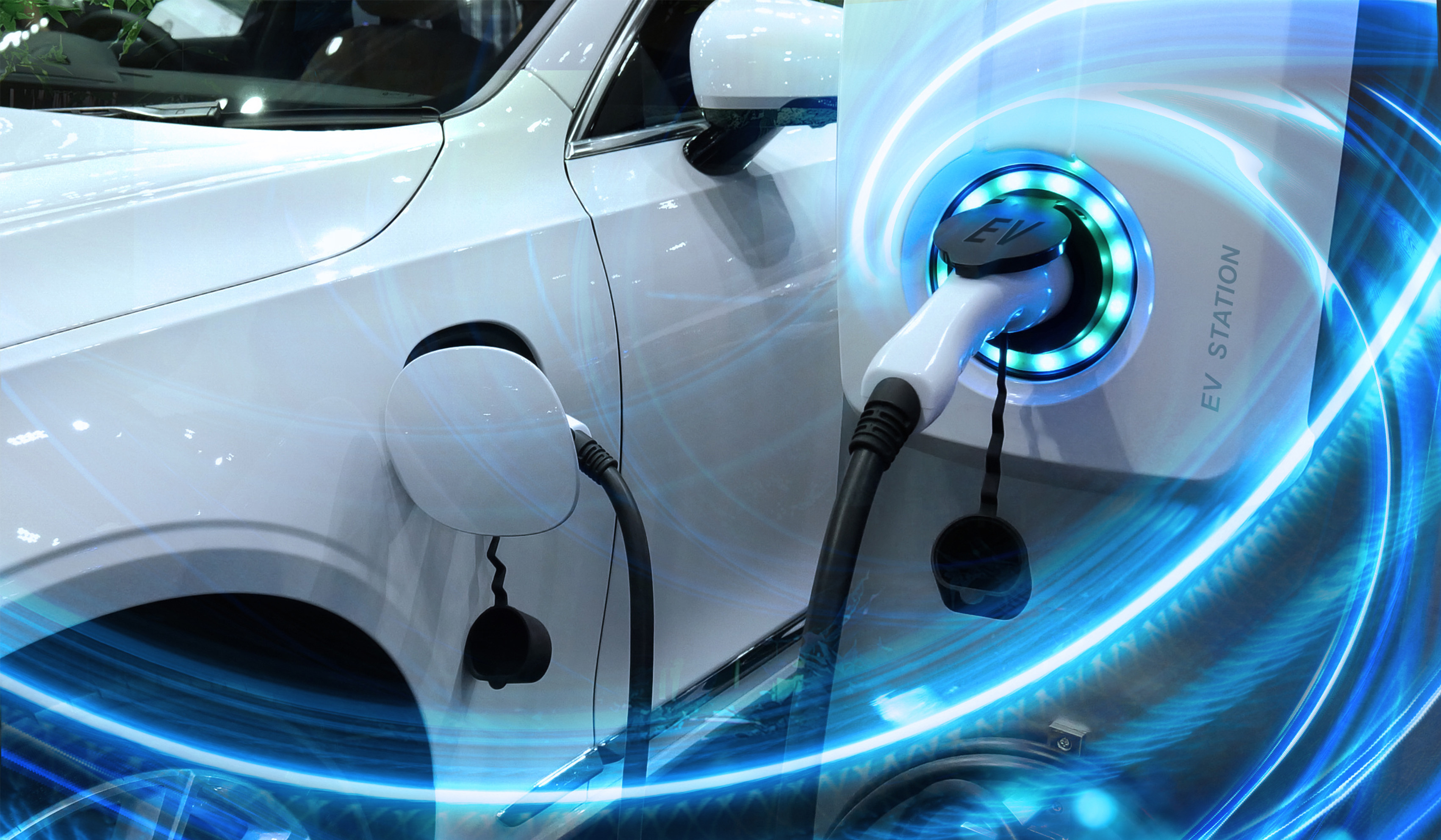What’s Driving the Electric Vehicle Revolution?
The electric vehicle (EV) market is experiencing unprecedented growth, driven by a combination of factors that are transforming the automotive industry. Governments around the world are implementing policies to reduce greenhouse gas emissions and promote sustainable transportation, leading to a surge in demand for electric vehicles. In the United States, for example, the federal government offers tax credits to encourage the adoption of EVs, while states like California and Oregon have set ambitious targets for EV adoption.
Environmental concerns are also playing a significant role in driving the EV revolution. As consumers become increasingly aware of the impact of climate change, they are seeking alternatives to traditional gasoline-powered vehicles. Electric vehicles offer a cleaner, more sustainable option, with zero tailpipe emissions and a significantly lower carbon footprint. According to a report by the International Energy Agency (IEA), EVs could reach price parity with internal combustion engine vehicles by the mid-2020s, making them an even more attractive option for consumers.
The growth of the EV market is also being driven by advances in technology, particularly in the development of electric vehicle motor startups. These startups are pushing the boundaries of innovation, developing new and more efficient electric motor technologies that are enabling the creation of faster, more powerful, and more sustainable EVs. As the demand for EVs continues to grow, electric vehicle motor startups are poised to play a critical role in shaping the future of the automotive industry.
According to a report by BloombergNEF, the global EV market is expected to reach 14 million units by 2025, up from just 2 million in 2020. This growth is being driven by a combination of factors, including government policies, declining battery costs, and increasing consumer demand. As the EV market continues to expand, electric vehicle motor startups will be at the forefront of innovation, developing new technologies and solutions that will enable the creation of even more efficient, sustainable, and powerful EVs.
How to Spot the Next Big Thing in Electric Vehicle Motor Technology
Identifying innovative electric vehicle motor startups requires a combination of research, analysis, and industry expertise. To spot the next big thing in electric vehicle motor technology, investors, industry professionals, and enthusiasts should look for startups that possess unique technology, scalability, and market potential. Here are some key factors to consider:
Unique Technology: Electric vehicle motor startups that develop proprietary technologies, such as advanced motor designs, new materials, or innovative manufacturing processes, are more likely to disrupt the industry. Look for startups that have filed patents or have a strong research and development pipeline.
Scalability: The ability to scale production quickly and efficiently is crucial for electric vehicle motor startups. Look for startups that have established partnerships with suppliers, have a strong manufacturing presence, and have a clear plan for expanding production capacity.
Market Potential: Electric vehicle motor startups that target high-growth markets, such as the electric vehicle market in China or the autonomous vehicle market in the United States, are more likely to succeed. Look for startups that have a deep understanding of their target market and have established relationships with key customers.
Competitive Advantage: Electric vehicle motor startups that possess a competitive advantage, such as a unique technology or a strong brand, are more likely to succeed. Look for startups that have a clear value proposition and a strong marketing strategy.
Management Team: A strong management team is essential for any startup, including electric vehicle motor startups. Look for startups that have experienced leaders with a track record of success in the industry.
By considering these factors, investors, industry professionals, and enthusiasts can identify innovative electric vehicle motor startups that have the potential to disrupt the industry and achieve long-term success. Some notable electric vehicle motor startups that possess these characteristics include Lucid Motors, Rivian, and Fisker Inc.
Top Electric Vehicle Motor Startups to Watch
The electric vehicle motor startup landscape is filled with innovative companies that are pushing the boundaries of technology and sustainability. Here are a few notable electric vehicle motor startups that are making waves in the industry:
Lucid Motors: Lucid Motors is a California-based electric vehicle motor startup that is known for its high-performance electric motors. The company’s motors are designed to provide exceptional power and efficiency, making them ideal for high-performance electric vehicles. Lucid Motors has already partnered with several major automakers, including Volkswagen and Audi, to supply its motors for their electric vehicle models.
Rivian: Rivian is an electric vehicle motor startup that is based in Michigan. The company is known for its innovative approach to electric motor design, which focuses on creating high-performance motors that are also highly efficient. Rivian’s motors are designed to provide exceptional power and torque, making them ideal for electric vehicles that require high-performance capabilities.
Fisker Inc.: Fisker Inc. is a California-based electric vehicle motor startup that is known for its innovative approach to electric motor design. The company’s motors are designed to provide exceptional power and efficiency, making them ideal for high-performance electric vehicles. Fisker Inc. has already partnered with several major automakers, including Volkswagen and BMW, to supply its motors for their electric vehicle models.
These electric vehicle motor startups are just a few examples of the many innovative companies that are working to advance the technology and sustainability of electric vehicles. By developing high-performance and efficient electric motors, these startups are helping to drive the adoption of electric vehicles and reduce greenhouse gas emissions.
Other notable electric vehicle motor startups include NIO, Faraday Future, and Byton. These companies are all working to develop innovative electric motor technologies that will help to drive the adoption of electric vehicles and reduce greenhouse gas emissions.
The Role of Artificial Intelligence in Electric Vehicle Motor Development
Artificial intelligence (AI) is playing an increasingly important role in the development of electric vehicle motors. Electric vehicle motor startups are leveraging AI to optimize motor design, improve efficiency, and enhance performance. By using machine learning algorithms and simulation tools, AI can help electric vehicle motor startups to:
Optimize motor design: AI can be used to simulate and optimize motor design, reducing the need for physical prototypes and speeding up the development process. This can help electric vehicle motor startups to create more efficient and powerful motors.
Improve efficiency: AI can be used to analyze data from electric vehicle motors and identify areas for improvement. This can help electric vehicle motor startups to optimize motor performance and reduce energy consumption.
Enhance performance: AI can be used to develop advanced control systems for electric vehicle motors, enabling them to operate more efficiently and effectively. This can help electric vehicle motor startups to create high-performance motors that meet the demands of electric vehicles.
Electric vehicle motor startups such as Lucid Motors and Rivian are already using AI to develop and optimize their electric motors. By leveraging AI, these startups are able to create more efficient, powerful, and sustainable motors that are helping to drive the adoption of electric vehicles.
The use of AI in electric vehicle motor development is not limited to startups. Established automakers such as Tesla and General Motors are also using AI to optimize their electric motor designs and improve performance. As the demand for electric vehicles continues to grow, the use of AI in electric vehicle motor development is likely to become even more widespread.
Challenges and Opportunities in Electric Vehicle Motor Manufacturing
Electric vehicle motor startups face a number of challenges in the manufacturing process, including high production costs, supply chain constraints, and competition from established players. Despite these challenges, there are also opportunities for electric vehicle motor startups to innovate and differentiate themselves in the market.
High production costs: One of the biggest challenges facing electric vehicle motor startups is the high cost of production. Electric vehicle motors require specialized materials and manufacturing processes, which can drive up costs. However, electric vehicle motor startups can mitigate these costs by investing in research and development, improving manufacturing efficiency, and reducing waste.
Supply chain constraints: Electric vehicle motor startups also face challenges in sourcing materials and components. The supply chain for electric vehicle motors is complex and can be prone to disruptions. However, electric vehicle motor startups can build strong relationships with suppliers, invest in inventory management, and diversify their supply chain to mitigate these risks.
Competition from established players: Electric vehicle motor startups also face competition from established players in the industry. However, electric vehicle motor startups can differentiate themselves by offering innovative products, improving efficiency, and providing better customer service.
Despite these challenges, there are also opportunities for electric vehicle motor startups to innovate and differentiate themselves in the market. Electric vehicle motor startups can invest in research and development, improve manufacturing efficiency, and reduce waste to stay competitive. They can also build strong relationships with suppliers, invest in inventory management, and diversify their supply chain to mitigate risks.
Electric vehicle motor startups can also differentiate themselves by offering innovative products, improving efficiency, and providing better customer service. By focusing on these areas, electric vehicle motor startups can establish themselves as leaders in the industry and drive growth and innovation in the market.
Electric Vehicle Motor Startups: A Key to Sustainable Transportation
Electric vehicle motor startups are playing a crucial role in the transition to sustainable transportation. By developing innovative electric motor technologies, these startups are helping to reduce greenhouse gas emissions, improve air quality, and promote sustainable transportation.
One of the most significant benefits of electric vehicle motor startups is their ability to reduce greenhouse gas emissions. Electric vehicles produce zero tailpipe emissions, which means that they do not contribute to climate change. In addition, electric vehicles are generally more energy-efficient than traditional gasoline-powered vehicles, which means that they can help to reduce energy consumption and lower emissions.
Electric vehicle motor startups are also helping to improve air quality. By reducing the number of gasoline-powered vehicles on the road, electric vehicle motor startups are helping to decrease air pollution and improve public health. This is especially important in urban areas, where air pollution is often a major concern.
In addition to their environmental benefits, electric vehicle motor startups are also promoting sustainable transportation. By developing innovative electric motor technologies, these startups are helping to make electric vehicles more accessible and affordable for consumers. This is especially important for low-income communities, where access to sustainable transportation options is often limited.
Electric vehicle motor startups are also creating new job opportunities and stimulating economic growth. By investing in research and development, these startups are creating new jobs and stimulating innovation in the industry. This is especially important for local economies, where the growth of electric vehicle motor startups can have a positive impact on economic development.
Overall, electric vehicle motor startups are playing a crucial role in the transition to sustainable transportation. By developing innovative electric motor technologies, these startups are helping to reduce greenhouse gas emissions, improve air quality, and promote sustainable transportation.
Investing in Electric Vehicle Motor Startups: A Guide for Investors
Investing in electric vehicle motor startups can be a lucrative opportunity for investors looking to capitalize on the growing demand for electric vehicles. However, it’s essential to approach this investment with a clear understanding of the market, the technology, and the companies involved.
Market Potential: One of the most critical factors to consider when investing in electric vehicle motor startups is the market potential. Electric vehicles are expected to continue growing in popularity, driven by government regulations, environmental concerns, and declining battery costs. Investors should look for startups that are well-positioned to capitalize on this growth.
Competitive Advantage: Electric vehicle motor startups need to have a competitive advantage to succeed in the market. This can be achieved through innovative technology, strategic partnerships, or a strong management team. Investors should look for startups that have a unique value proposition and a clear plan for differentiating themselves from competitors.
Management Team: A strong management team is essential for any startup, and electric vehicle motor startups are no exception. Investors should look for startups with experienced leaders who have a deep understanding of the industry and a proven track record of success.
Financial Performance: Electric vehicle motor startups need to demonstrate strong financial performance to attract investors. This includes a clear plan for revenue growth, a solid balance sheet, and a demonstrated ability to manage costs. Investors should look for startups that have a strong financial foundation and a clear plan for scaling their business.
Regulatory Environment: The regulatory environment is a critical factor to consider when investing in electric vehicle motor startups. Governments around the world are implementing policies to support the adoption of electric vehicles, and investors should look for startups that are well-positioned to capitalize on these policies.
By considering these factors, investors can make informed decisions about investing in electric vehicle motor startups. It’s essential to approach this investment with a clear understanding of the market, the technology, and the companies involved.
The Future of Electric Vehicle Motor Technology: Trends and Predictions
The electric vehicle motor technology landscape is rapidly evolving, with advancements in materials science, new business models, and potential disruptions to the industry. Here are some emerging trends and predictions that are expected to shape the future of electric vehicle motor technology:
Advancements in Materials Science: Researchers are working on developing new materials that can improve the efficiency and performance of electric vehicle motors. For example, the use of advanced magnetic materials and high-temperature superconductors could lead to more efficient and powerful motors.
New Business Models: Electric vehicle motor startups are exploring new business models that can help to reduce costs and improve efficiency. For example, some startups are offering motor-as-a-service models, where customers can pay a subscription fee for access to electric vehicle motors.
Potential Disruptions to the Industry: The electric vehicle motor industry is expected to experience significant disruptions in the coming years, driven by advancements in technology and changes in consumer behavior. For example, the rise of autonomous vehicles could lead to new opportunities for electric vehicle motor startups.
Increased Focus on Sustainability: Electric vehicle motor startups are expected to place a greater emphasis on sustainability in the coming years, driven by growing concerns about climate change and environmental degradation. This could lead to the development of more sustainable motor technologies and manufacturing processes.
Greater Investment in Research and Development: Electric vehicle motor startups are expected to invest more in research and development in the coming years, driven by the need to stay ahead of the competition and to develop new and innovative technologies.
These are just a few of the emerging trends and predictions that are expected to shape the future of electric vehicle motor technology. As the industry continues to evolve, it’s likely that we’ll see even more innovative and exciting developments in the years to come.







